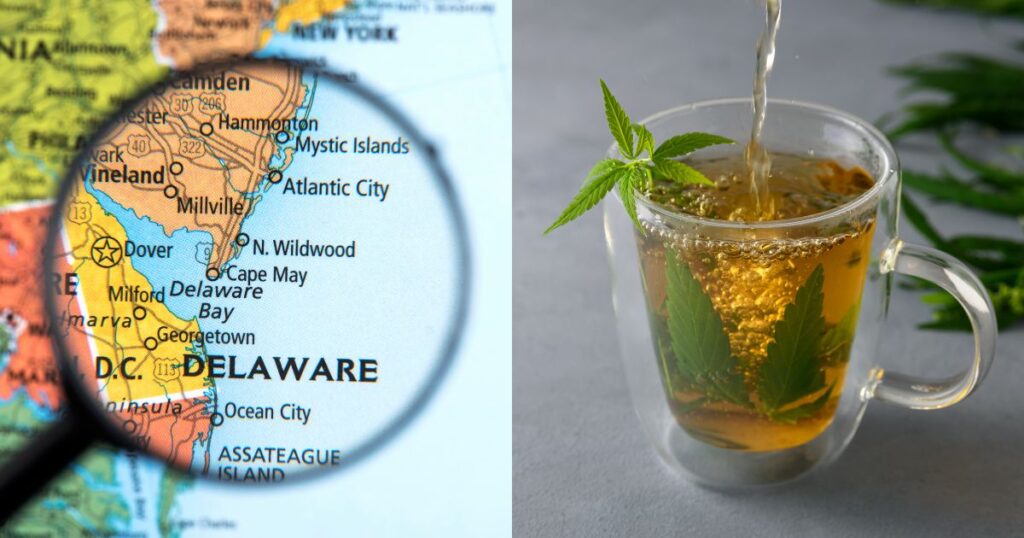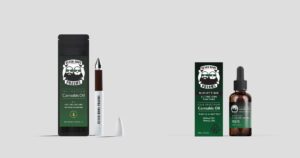Legislation around cannabis products often reflects different opinions and interests, balancing new industries with existing regulations. A recent bill in Delaware, House Bill 98 (HB 98) and its substitute, highlight such challenges. Aimed at regulating the sale of THC-infused beverages, it proposes restricting their sale exclusively to liquor stores and certain microbreweries, leaving cannabis dispensaries and hemp retailers in Delaware out of the equation.
A Closer Look at HB 98 and Its Substitute
The original version of HB 98 aimed to create a regulated marketplace for THC-infused beverages. However, the substitute bill introduced several key changes. It clarified that THC-infused beverages would be taxed at $0.50 per container.
Additionally, it removed any language related to consumable hemp products. Finally, the bill detailed that the act would take effect 90 days after its passage.
While the substitute bill streamlined certain elements, its most contentious provision remains intact—that only liquor stores and licensed microbreweries can sell THC-infused beverages for off-premises consumption.
This decision effectively excludes cannabis dispensaries, hemp shops, and other retail avenues that have played crucial roles in developing the THC-infused product market.
Taxation and Governance Model
One central argument for the bill is the perceived need for a tightly regulated framework. Proponents, including State Representative Deborah Heffernan, who leads the legislation, argue that the “three-tier system” long used for managing alcohol distribution is a logical fit for THC-infused beverages.
This system requires that beverages be produced by approved manufacturers, distributed through licensed wholesalers, and sold exclusively through liquor stores.
The bill also seeks to impose safety regulations, such as capping the THC content of beverages at 10 mg per 12-ounce container and requiring that only state-approved testing facilities verify product quality.
Supporters of this model claim it ensures consumer safety by introducing oversight while establishing clear taxation guidelines.
However, these measures point to an undercurrent of favoritism toward Delaware’s alcohol industry. Facing declining revenues in recent years, liquor retailers have welcomed the opportunity to tap into the THC market.
Many see this legislation as giving alcohol companies a leg up at the expense of the cannabis industry.
Delaware Cannabis and Hemp Retailers Left Out in the Cold
The decision to shut dispensaries and hemp shops out of the THC-infused drinks market has drawn sharp criticism.
These establishments, traditionally the primary sellers of cannabis products, argue that their specialized focus makes them better equipped to advise and educate customers about THC products.
Jesse Ginefra, owner of Botana Organics, a hemp retailer in Delaware, expressed frustration, in a recent article by Whyy, calling the bill “demoralizing.” Ginefra argued that it undermines stores like his that have invested years building trust with customers. Many of their patrons turn to THC-infused beverages as an alcohol alternative.
Forcing consumers to purchase these drinks at liquor stores instead of hemp shops or dispensaries, critics say, dilutes the ability to provide knowledgeable, personalized recommendations.
Zoe Patchell, leader of the Delaware Cannabis Advocacy Network, emphasized that banning cannabis dispensaries could harm individuals recovering from alcohol addiction by discouraging them from visiting liquor stores.
She also noted that consumers who are looking for healthier, functional alternatives are now being funneled into spaces primarily catering to alcohol buyers.
What About Consumer Choice?
Another problem with the bill is its limited approach to consumer accessibility. By allowing only liquor stores to retail THC-infused beverages, the legislation effectively restricts competition within the market.
States like Connecticut, which permit both liquor stores and cannabis dispensaries to sell such products, offer a model of a more inclusive framework that supports diverse retail channels while maintaining safety and regulatory standards.
The Delaware bill stands in contrast to these approaches, creating a potential bottleneck for consumers and failing to recognize the role that dispensaries and hemp retailers have already played in this growing market.
Critics argue that such exclusivity does little to serve users who value both variety and accessibility in consumer choice.
Moving Forward
The fate of this legislation remains in question as it awaits key votes in the Delaware General Assembly. No doubt, the conversation about HB 98 is an example of larger, national debates surrounding cannabis regulation.
While creating clear rules around THC-infused products is undeniably necessary, these regulations must promote fairness across industries while prioritizing consumer needs.
Lessons from other states show that inclusive policies foster healthier markets. For Delaware to be a player in sensible marijuana legislation, it needs to re-examine current proposals to benefit, not isolate, the very businesses that built this industry from the ground up.
If nothing changes, the consequences could be far-reaching, including reduced competition, stifled innovation, and a fractured retail ecosystem where alcohol companies dominate yet another avenue of commerce.
















